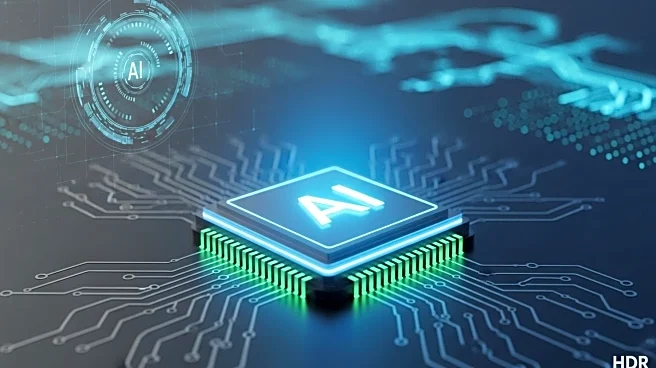What's Happening?
Volkswagen Group made several announcements at the IAA Mobility event in Munich, focusing on advancements in AI, semiconductors, and bidirectional charging. The company unveiled a new procurement model with Rivian and Volkswagen Group Technologies, covering over 50 semiconductor categories. This initiative aims to streamline procurement, reduce costs, and secure supply for future vehicle models. Additionally, Volkswagen plans to invest up to one billion euros in AI-driven vehicle development and industrial applications by 2030, expecting efficiency gains and cost avoidance opportunities of up to four billion euros by 2035.
Why It's Important?
These developments highlight Volkswagen's commitment to becoming a leader in automotive technology and innovation. The focus on AI and semiconductors is crucial as the automotive industry increasingly relies on these technologies for vehicle development and production efficiency. The investment in AI is expected to accelerate development processes, enhance competitiveness, and strengthen Volkswagen's position in the global technology market. The bidirectional charging initiative also reflects a push towards sustainable energy solutions, potentially reducing charging costs and contributing to energy independence.
What's Next?
Volkswagen's initiatives are likely to influence the automotive industry's approach to technology and sustainability. The company's investment in AI and semiconductors may prompt other automakers to enhance their technological capabilities. The bidirectional charging pilot project could lead to broader adoption of energy-efficient practices in the industry. Stakeholders, including automotive suppliers and technology partners, may respond by strengthening collaborations to support these advancements.
Beyond the Headlines
Volkswagen's focus on AI and semiconductors may have long-term implications for the automotive industry's supply chain and technological landscape. The integration of AI in vehicle development could lead to significant shifts in manufacturing processes and workforce requirements. Additionally, the emphasis on sustainable energy solutions aligns with global efforts to reduce carbon emissions and promote renewable energy sources.








